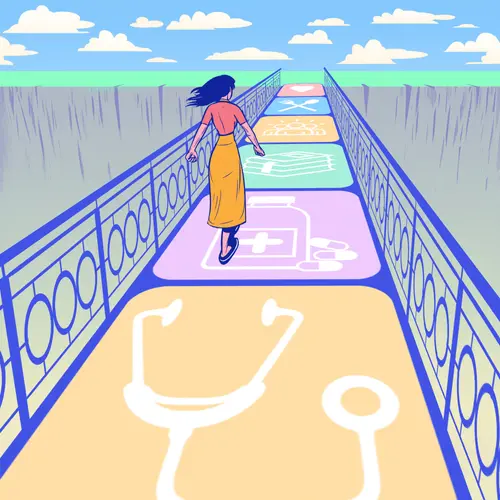"I can lose 10 ugly pounds anytime I want -- I'll just cut off my head!" Do you use humor to make light of your emotional eating and your weight? Make jokes about overeating and being fat as a way of getting along with other people? I was a Grand Champion at it.
"Make light" -- ha! There was nothing light about my never-ending need to make fun of my fat body and overweight appearance. I thought other people saw nothing about me except that I was fat and unattractive. (Note for later: I was wrong.) So, using humor, I rushed to make sure they knew that I saw myself that way, too. Especially that I saw myself as someone they didn't need to take seriously.
Of course, underneath the smiles and laughter, I yearned to be taken seriously! But I felt that the minute other people saw my size, they discounted the value of everything else about me. So I often didn't try very hard to be taken seriously. It was easier, and above all safer, to make people laugh.
Deep down, I knew I needed to take me seriously. I hated being fat and feeling ugly. It wasn't funny. And the damage it did to my self-esteem and self-respect only increased my inability to see myself as anything but fat and ugly. Yet I kept on laughing at myself when I was with other people, mocking my fat and my need for food in ways that further damaged my self-respect.
Later, when I began to really see and value parts of myself that my fat had pushed into the background, I came to realize that getting people to laugh at me was yet another way to keep them at a "safe" distance. That way, I could feel less anxiety in dealing with them. It was also a way to keep from feeling my real feelings of despair, hopelessness, and anger at myself about my overeating and my fat body.
So I was even keeping a distance from myself!
But I didn't stop there. I was very good at poking fun at other people. I'd been raised with cutting-edge criticism all around me, and often aimed at me. I'd learned how to defend myself with humor so well, I grew up defending myself that way almost all the time -- whether I was criticized or not. And when in therapy I realized how I'd hurt others with my funny but often hurtful remarks, I cried as hard as I'd laughed, all those years. I cried because I'd hurt so many others as well as myself.
So how did I learn to take myself seriously and be funny for real, so that everybody, including me, enjoyed the joke? It started in therapy when I got the support I needed to begin to feel my real feelings -- feelings that I'd kept hidden from myself for years because I feared the pain of feeling them would be too great.
I wasn't wrong. On some occasions the pain was very great. But my therapist was there to guide me through it until I could understand it and let it go, move it to a different place in my heart that I'd prepared for it. It took awhile, but there came a day when I discovered myself talking with my therapist entirely about things I was feeling now. I was at peace with my past. And increasingly, I looked forward to my future with a smile.
I also began feeling more comfortable around other people. (You know something about this if you've read about my "teddy bear therapy"!) I was more able to express warm, caring feelings -- and less inclined to "zap" others with biting remarks.
I'm happy to say I didn't lose my sense of humor. In fact, as I continued to feel better about myself, I saw much about life that really was funny. And more and more I shared wonderfully enjoyable moments of laughter with the people around me.
But I did become more conscious of how much even a very funny remark that makes everybody laugh can hurt the person it's aimed at. Most important, I didn't want to be funny in that way anymore.
It seems to me that this is similar to how I began to lose weight: Over time, I discovered I just didn't feel as much like overeating as I had before. I no longer needed food, just as I didn't need humor, to protect me. Most important, I had learned that I didn't need to keep my distance from others in order to live -- that, in fact, closeness to others is what living is all about.
Diana
How Much Does Humor Hurt in Your Life?
To learn more, ask yourself:
- When I was young, was I easily hurt when others made fun of me?
- When that happened, how did I feel? What did I do?
- Do others make fun of me today? How do I respond?
- Is it possible that others sometimes are not making fun of me when I think they are?
- Do I often make fun of myself before anyone else can? How do the others respond?
- Do I often make fun of others?
- Is humor taking the place of something in my relationships with others? What might that something be?
